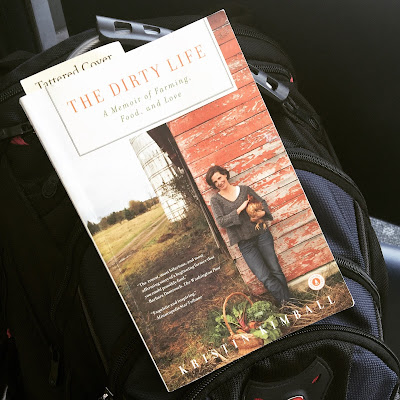But first, a public service announcement.
Keebler is ripping off Girl Scout cookies...effectively and wonderfully.
I haven't tried the Thin Mint rip offs, but boy can I speak for the Samoa ones. DANG. When I stumbled upon these in the store, I had this moment of cognitive dissonance. I knew immediately that these were rip offs, I mean
come on. My first thought was that I need to support the Girl Scouts; cookie sales are important for their funding, and I want young girls in our country to develop social skills, leadership skills, entrepreneurial skills, and have a good time while they're learning.
But I also want cookies.
I don't want to spend 11 months of the year pining for the 1 in which Girl Scout cookies, namely Samoas, are available to me.
Capitalism won. It usually does.
The cookies are
so good. Your taste buds will thank me even if your waist line won't. (Full disclosure: my inner feminist is very disappointed. I sneak around in my own house, shoving a cookie in while grabbing a glass of water. Passing one to G while I switch out the laundry. The whole thing is shady when considering Grrrrl Power.)
And now, a good read:
 |
| The Dirty Life: A Memoir of Farming, Food, and Love by Kristin Kimball |
This is another book I took on vacation, and finished it on the plane (the book isn't that quick of a read - the plane ride was long :) Nat King Cole recommended this to me, in her typical dry style. She pushed it across the table to me and said something like, "You'll like this. It has lots of animals and food and dirt in it." One is wise to listen to Nat King Cole. So I read it, and really enjoyed it.
Kimball was a young and hip journalist living in New York City when she was assigned to do a story on a young and hip farmer. Cue the rom-com movie plot: city girl finds country boy unbelievably attractive (in all aspects - not just looks), city girl hates the dirt and heat and work, city girl returns to city. Country boy woos her. City girl leaves big city life to help him on the farm and never looks back. A love story is born, but so is a farm, a community, a local food service, and, later, two daughters.
I am often - ok,
usually - hard on memoirs. I don't like how people portray themselves and I generally distrust the genre even though I read it a lot and end up loving most of the books and the authors. I don't get it but whatever. This book, though, taps into my childhood, spent on a farm with my Gama and Papa. They didn't raise food, like Kimball and her husband do in this book, but they raised animals (pigs, horses, cattle) and tended to the land (a whopping 77 acres in rural Arkansas) by loaning it out for herd grazing, by making hay, etc. This book also appeals to my sense of adventure. I think it's cool that we live in a day and age where it is possible (although not necessarily easy) to up and change our entire lives and careers. We are able to pursue our interests and move to different states with relative ease compared to people in less advanced countries, or even people in this one during past decades.
Kimball writes candidly about the challenges, concerns, worries, and rewards of being tied to the land. When your income and the lives of all of your animals depend upon the land, you really pay attention to things like the weather. And farm equipment. Your schedule is not flexible. You can't call in sick. You develop a relationship with your environment that is (arguably) not possible in a city. And perhaps these types of realizations can only occur when someone is able to see the land with new eyes, coming from a city instead of being raised in the country?
As I mentioned with
Whiskey Tango Foxtrot, this book is also easy to pick up and put down. It is a reliable personal account of what is involved in eating locally and sustaining one's lifestyle apart from the military industrial machine of capitalism, again in a non-preachy way. And it includes recipes!
Shhhhhhh, I'm eating a Samoa...
























































